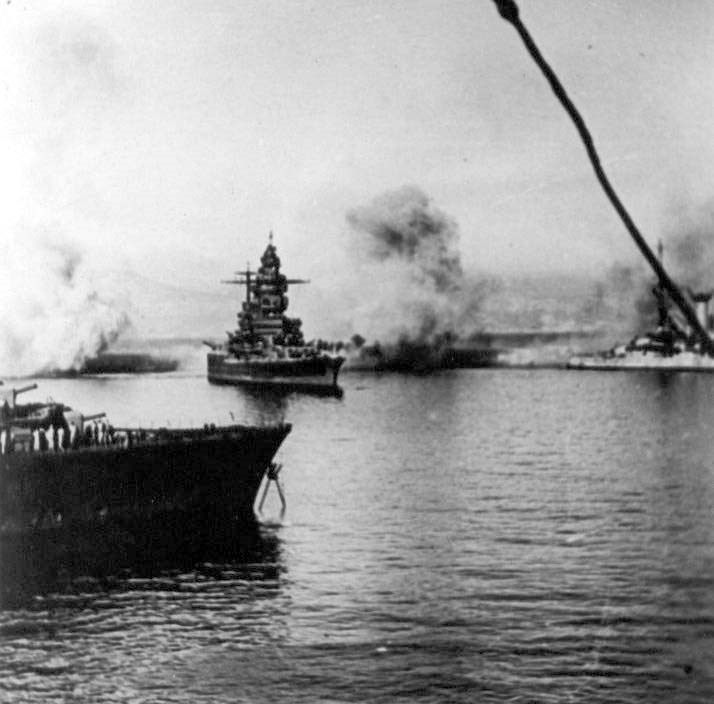Eighty years ago, almost to the day, the most astonishing and controversial naval action of the Second World War took place. The greater part of it lasted just 10 minutes.
When it was over, the most powerful squadron of the French Fleet had been destroyed at its Mediterranean base in Algeria (then a French possession).
The battleship Bretagne went to the bottom, the Dunkerque ran aground and the Provence was beached. Numerous escort craft were sunk or damaged.
In all, more than 1,300 French officers and men lost their lives.
The attacking fleet was British, France’s erstwhile ally.
How could such a stab in the back, for it was all that, be justified? Could it, indeed?
Part of the cause was garbled communications. Britain had intended to offer the French commander, Admiral Marcel-Bruno Gensoul, four options.
First, sail with the Royal Navy and continue the fight against Germany.
Second, sail with reduced crews to a British-controlled port. If either of those choices were taken, France would be compensated in full for any losses after the war was over.
Third, sail to a French port in the West Indies, Martinique perhaps, and stay out of German hands. Or alternately, sell the ships to the U.S. The president, Franklin D. Roosevelt, had offered to buy them.
Fourth, scuttle the fleet or prepare to be sunk.
It remains unclear to the present how much Gensoul was told or understood. He spent most of the day in question radioing the French Vichy government for support, and dragging out the negotiations until backup arrived.
The Brits, who were reading the French codes, knew this, and saw nothing to encourage them.
But the main reason for the attack was that no one in London had confidence the French would keep their vessels out of German or Italian hands.
The admiral in charge, Jean François Darlan, had promised he would never let this happen.
But could Darlan be trusted to keep his word? Winston Churchill called him “One of those good Frenchmen who hate England.” Apparently, his great-grandfather had been killed at Trafalgar, a fact Darlan pointedly drew to Churchill’s attention.
However, it was not a matter of what Darlan might or might not wish. It was a matter of how much German pressure he could withstand. What would have happened had German S.S. troops rounded up the families of senior French navy officers and threatened to shoot them unless the ships were turned over?
Indeed, what if the S.S. threatened to wipe out an entire village (they later did so in Czechoslovakia), or alternately burn the great art treasures of the French enlightenment? They were certainly capable of it.
Could Britain afford to take the risk that Darlan would hold firm in such eventualities? For had the French battle fleet been joined with the German and Italian navies, that might have turned the course of the war.
Then again, the French army had folded in just six weeks, to the utter disbelief of Britain’s generals (themselves to suffer one embarrassment after another in the early years of the war).
And the French Vichy premier, Marshall Philippe Pétain, was defeatist to the core. Here, again, the Brits saw little cause to suppose Darlan would be any better.
So was the sinking of the French ships reasonably justified? Roosevelt certainly thought so. He told the French ambassador who came to expostulate that he would have done the same himself.
I think it comes down to an assessment of the psychologies in play. Retention of the fleet in French hands had been guaranteed by Germany when France surrendered.
But could the Germans be trusted to keep their word?
Equally, could the French admirals be counted on to scuttle their ships if need be, regardless of the threats they might face?
Given where things stood in July 1940, it’s hard to see what alternative the Royal Navy had. Though for the record, later in the war, a French commander did scuttle his ships when a German raiding party tried to seize them.
And the leaders of Vichy France did not declare war on Britain, as Winston Churchill had feared they would.
So in that respect, French honour was preserved.



